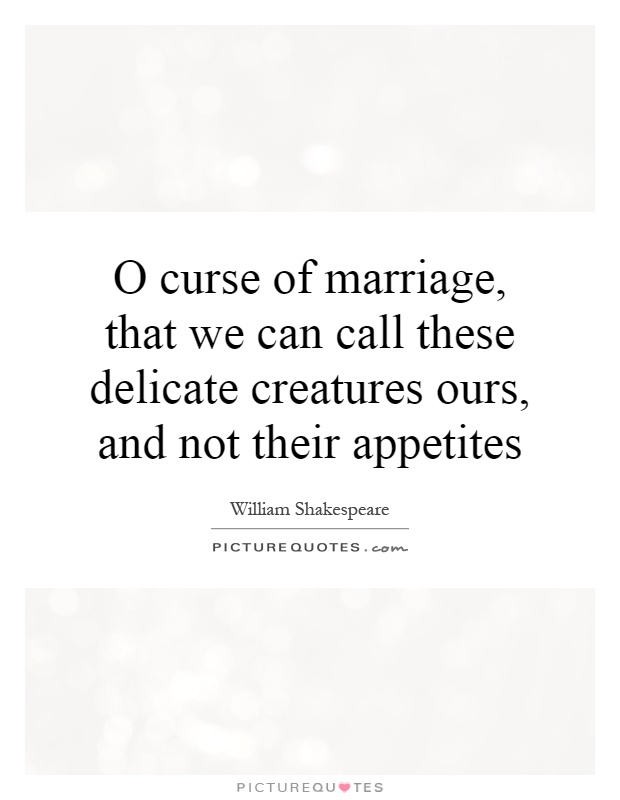O curse of marriage, that we can call these delicate creatures ours, and not their appetites

O curse of marriage, that we can call these delicate creatures ours, and not their appetites
In William Shakespeare's works, the theme of marriage is often explored in depth, with characters grappling with the complexities and challenges that come with the institution. One of the most famous quotes on marriage from Shakespeare comes from the play "Othello," where the character Iago laments, "O curse of marriage, that we can call these delicate creatures ours, and not their appetites."This quote speaks to the idea that marriage can be a double-edged sword, as it involves not only the union of two individuals but also the merging of their desires, needs, and appetites. In the context of the play "Othello," Iago's words reflect his cynical view of marriage as a constraint that limits individual freedom and autonomy. He sees marriage as a form of possession, where one partner claims ownership over the other, stifling their natural inclinations and desires.
Shakespeare often portrays marriage as a complex and fraught institution, where love and desire can be overshadowed by jealousy, betrayal, and manipulation. In "Othello," the marriage between Othello and Desdemona is torn apart by Iago's machinations, leading to tragic consequences for both characters. The quote "O curse of marriage, that we can call these delicate creatures ours, and not their appetites" highlights the destructive power of jealousy and possessiveness within a marriage, as well as the vulnerability of individuals who are bound together by love and commitment.
Shakespeare's exploration of marriage in his plays reflects the social and cultural norms of his time, where marriage was often seen as a means of securing power, wealth, and social status. However, Shakespeare also delves into the emotional and psychological complexities of marriage, showing how it can be a source of both joy and sorrow, fulfillment and frustration. The quote from "Othello" captures the ambivalence and tension inherent in the institution of marriage, reminding us of the delicate balance between love and possession, desire and control.












 Friendship Quotes
Friendship Quotes Love Quotes
Love Quotes Life Quotes
Life Quotes Funny Quotes
Funny Quotes Motivational Quotes
Motivational Quotes Inspirational Quotes
Inspirational Quotes